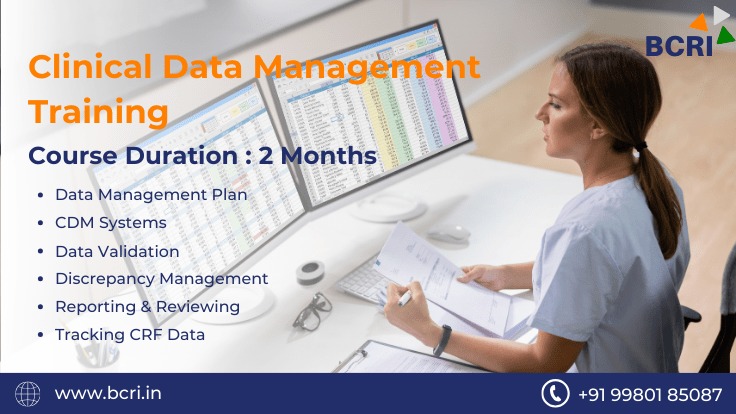In the rapidly evolving landscape of healthcare, the role of Clinical Data Management (CDM) is gaining prominence as a crucial driver of innovation and progress. This blog explores the future of healthcare through the lens of professionals in Clinical Data Management, offering valuable career perspectives and insights into the transformative impact of data in the industry.
Opportunities:
Career opportunities in Clinical Data Management are diverse and rewarding, career offering as Clinical Data Coordinator which is an Entry-level role, responsible for data entry, verification, and basic coding. Clinical Data Associate/Analyst who is responsible for data quality checks, query resolution, and reporting.
Clinical Data Management Training:
The clinical data management training will be more helpful in getting into the healthcare industry. Overall, careers in clinical data management offer a variety of opportunities for individuals with a strong background in healthcare, data management, and regulatory compliance. These careers are in high demand and offer competitive salaries and opportunities for advancement.
CRA Training Program:
A well-structured CRA training program can equip the student with the necessary skills, knowledge, and confidence to excel in this clinical research field. To become a clinical research associate (CRA) you need to have a degree in life sciences, Pharma, medical sciences, or nursing.
A clinical research associate (CRA) plans, prepares, and carries out clinical trials to test new or existing drugs and assess their safety and benefits of use, to ensure this the individual should have sound knowledge of clinical research. The CRA training program makes the aspirant ready to have the knowledge and proficiency needed for all stages of the clinical research process. From the design of clinical trials to their completion, this CRA training program will provide you with an in-depth look into all aspects of managing a clinical trial.
How can students gain practical experience in clinical data management during their training?
This training provides students with hands-on experience working on real-world clinical data management tasks, such as data cleaning, data collection, and discrepancy management under the supervision of faculty mentors. Students stay updated on developments and advancements in the field of clinical research through clinical data management training.
Job Roles:
Clinical Data Management where it involves the use of computer applications to manage trial data by storing them in database systems. It encompasses concepts like electronic Case Report Forms (CRFs), clinical site medical records, reconciled data, significant data analysis. There are some key subjects covered in CDM programs which are
a). CRF Design: Creating structured forms for data collection.
b). Clinical Data Entry & Remote Data Entry: Efficiently inputting data.
c). Discrepancy Management: Ensuring data accuracy.
d). Introduction to Clinical Research, Roles, and Responsibilities: Understanding the clinical trial process.
e). Clinical Submissions Planning for Trials: Preparing regulatory submissions.
f). Electronic Data Capture: Utilizing technology for data collection.
g). Managing Lab Data: Handling laboratory-related data.
What advice would you give to students interested in pursuing a career in clinical data management?
The students can gain relevant skills in clinical data management, such as proficiency in data management, knowledge of regulatory requirements (e.g., Good Clinical Practice), and understanding of clinical trial methodologies. They can seek practical experience through database training which will enhance your understanding of data management processes and make you more competitive in the job market.
Career Growth:
The versatility of career options in Clinical Data Management, ranging from clinical data entry and analysis to leadership and management positions. The CRA training program makes an individual confident with highly equipped knowledge in clinical research., which leads to a successful career as a Clinical research associate. Additionally, professionals in CDM often have more opportunities to specialize in study areas such as oncology, cardiovascular research, or specific therapeutic areas, further diversifying their career paths. The evolving nature of the healthcare industry and the increasing emphasis on clinical data-driven decision-making continue to create new opportunities within the field of Clinical Data Management.





Comments